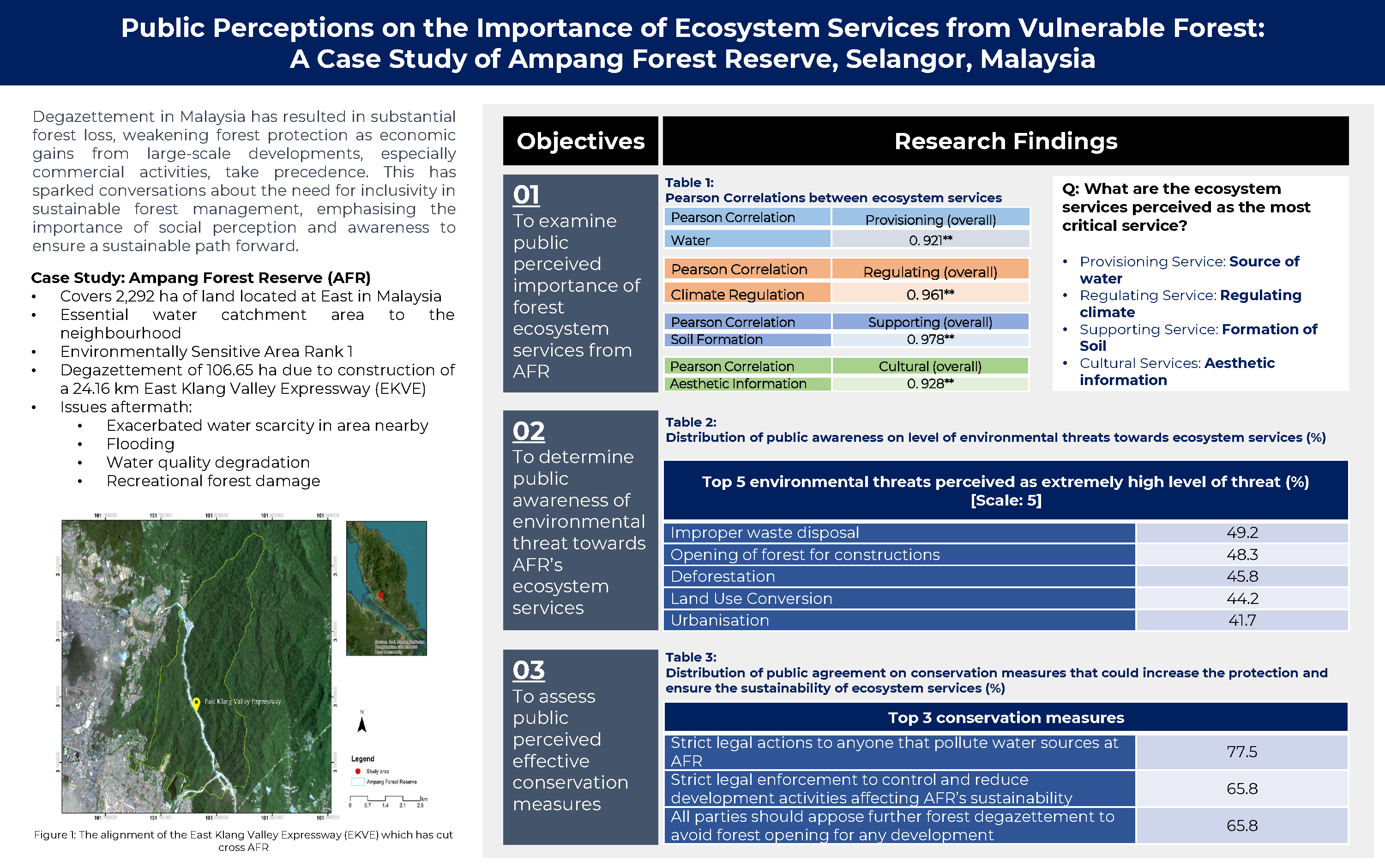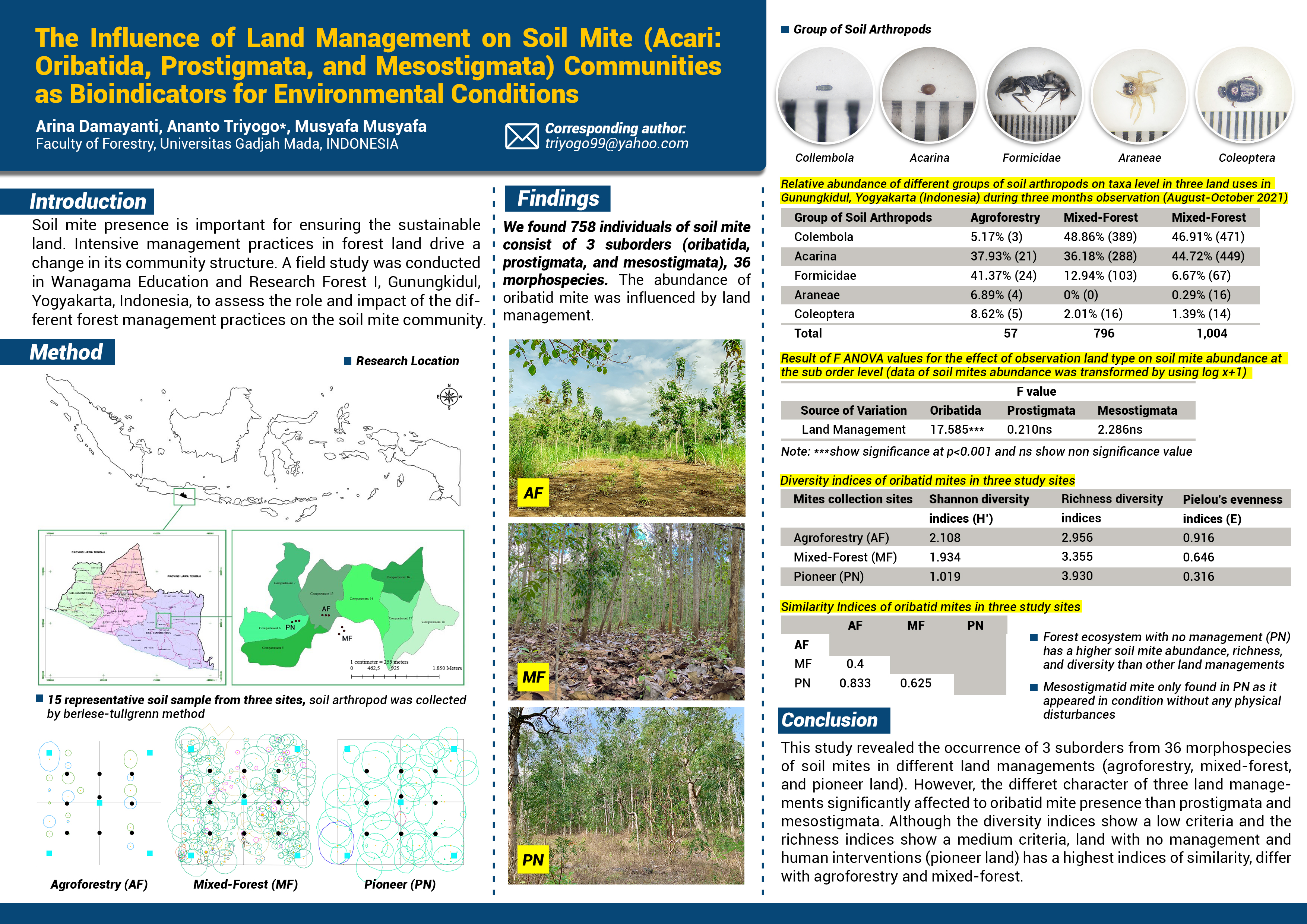Abstract
Devolution of forest resource management can be suggested to create the everlasting forest, give more equity to society and be more efficient. The aim of this writing is to analyse (1) the devolution of forest resource management in Indonesia, especially society forest by examining the actor dimention involved in role transfer and right dimention and responsibilities which are devoluted; (2) the realization of policy implementation of forest resource devolution at field level; (3) the implication of devolution to forest resource conservation and social equity at the community level; and (4) doing comparison effort between Indonesia and Philipina to take a lesson from Philipine experience.
Based on government policy noted in government rules, the actor who gets role transfer to manage forest resource through society forest is family, whereas a group or cooperation can play role as a place to unite the families power. The right of society forest which is given for along thirty five years and it can be extended, gives a quite long security to right owner. But then the realization of the society forest policy is still very small, it has not covered more than 400 hectares of state forest area. The implication from this program to forest resource conservation has not been significant, even it looks inversely that society forest pushses degradation and deforestration. It happens because the forest areas which are made to be society forest are the forest areas which were farmed out by society for agriculture or plantation in the early time when the national situation were in monetery, economical, and political crisis. The development of forest management devolution through CBFM in Philipine is more progressive than society forest in Indonesia. CBFM in Philipine has reached almost 6 million hectares or 20% from total of state forest area. The role of president, authorities in DENR area, and local government such as regency and provincy is very important to realize the devolution of forest resource management to society through CBFM.
Based on government policy noted in government rules, the actor who gets role transfer to manage forest resource through society forest is family, whereas a group or cooperation can play role as a place to unite the families power. The right of society forest which is given for along thirty five years and it can be extended, gives a quite long security to right owner. But then the realization of the society forest policy is still very small, it has not covered more than 400 hectares of state forest area. The implication from this program to forest resource conservation has not been significant, even it looks inversely that society forest pushses degradation and deforestration. It happens because the forest areas which are made to be society forest are the forest areas which were farmed out by society for agriculture or plantation in the early time when the national situation were in monetery, economical, and political crisis. The development of forest management devolution through CBFM in Philipine is more progressive than society forest in Indonesia. CBFM in Philipine has reached almost 6 million hectares or 20% from total of state forest area. The role of president, authorities in DENR area, and local government such as regency and provincy is very important to realize the devolution of forest resource management to society through CBFM.
Authors
SuharjitoD. (1). Devolusi Pengelolaan Hutan di Indonesia: Perbandingan Indonesia dan Philipina (Devolution of Forest Management in Indonesia: Comparison between Indonesia and Philipina). Jurnal Manajemen Hutan Tropika, 15(3), 123-130. Retrieved from https://journal.ipb.ac.id/index.php/jmht/article/view/3250
Jurnal Manajemen Hutan Tropika is an open access journal which means that all contents is freely available without charge to the user or his/her institution. Users are allowed to read, download, copy, distribute, print, search, or link to the full texts of the articles in this journal without asking prior permission from the publisher or the author. This is in accordance with the Budapest Open Access Initiative (BOAI) definition of open access.




